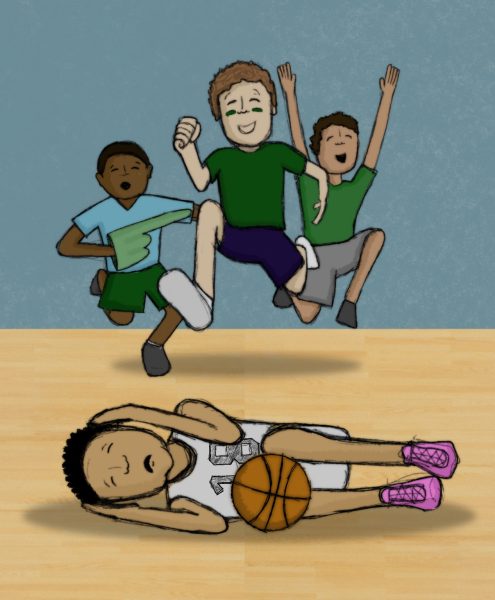
One of my favorite memories at Tulane University happened just over a year ago, when the Tulane football team hosted the University of Central Florida for the American Athletic Conference Championship game. My friends and I showed up to Yulman Stadium 90 minutes before kickoff, not just for a chance to watch our school play in a big football game, but to embrace the atmosphere of what we knew was a historical event at our university.
When Michael Pratt scored the game-stealing touchdown for the Green Wave late in the fourth quarter, we didn’t get up to leave the stadium, but pushed to the front of the stands alongside the rest of the student section. We all knew what was about to happen, something I certainly never thought was possible at this school. As Pratt took a knee, the crowd wasted no time running onto the field, embracing each other and celebrating alongside the players, who brought home Tulane’s first-ever conference championship trophy.
Fast forward to just over a month ago, when I joined both fans and players in celebrating Green Wave basketball’s first win over a top 10 opponent in over 40 years. While not as monumental as getting on the football field, it was certainly a moment I know that I, and the players, will never forget.
Storming the court or field following a big win, whether in a conference championship game or upset, is one of the greatest traditions not only in college sports, but sports in general. It encapsulates why people love sports: the passion of the fans, the community formed watching your favorite team and the overall pride you feel for your school after a great win.
That being said, whenever you give a bunch of energized college students — who may or may not have had a few drinks — the ability to run around a football field or basketball court, incidents are bound to occur.
The most recent case was at Wake Forest University, when a student ran into Duke University star player Kyle Filipowski while storming the court, resulting in Filipowski hobbling his way out of the arena. This incident was not an outlier: just a month earlier, University of Iowa star Caitlin Clark collided with a court-storming fan. Even during that historic Tulane win over University of Memphis, a fan pushed Memphis’s David Jones once on the court.
These incidents have led many sports media members to criticize the court storming tradition, claiming it as both unnecessary and dangerous to the game. Never afraid to spew out hot takes when given the chance, basketball analyst Jay Bilas suggested on ESPN that detaining unruly fans on the court can halt the practice: “One time, all you have to do is once they’re on the court, don’t let them off. Just say, ‘You’re all detained’ and give them all citations or arrest them if you want to. And then court stormings will stop the next day.”
It goes without saying that nobody wants to watch anybody get hurt, let alone a team’s star player, because a drunk college student got a little too aggressive. However, what most ESPN debates leave out is the room for a middle path in solving the problem. After all, it would be ridiculous if thousands of college students collectively got arrested for stepping onto a football field in celebration of a great win.
Change for this problem has to start with security. While many security guards form a perimeter near the student section to oversee the students getting on the court, they must do the same near the opposing team. Security guards know when to expect court or field stormings. When an underdog at home is up big against a top team late into the game, staff expect fans to get onto the court. When a rivalry game approaches an end, it is expected for the home crowd to get onto the field. After all, this tradition has existed in college sports for over 40 years, when even the Stanford University band got onto the field — and that was before the game even ended.
When I walked into Yulman Stadium for the conference championship game, I was really there for one reason, to take part in history by getting onto the Tulane football field alongside my friends and the rest of the student body. With better anticipation and increased safety, more fans can have the opportunity to take part in a tradition they will never forget, and maybe not end the night in handcuffs.




Leave a Comment